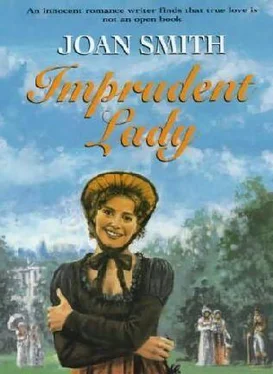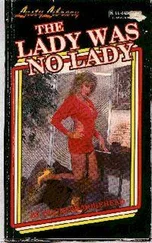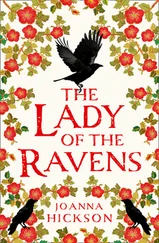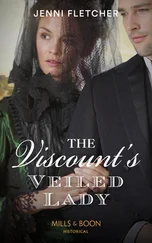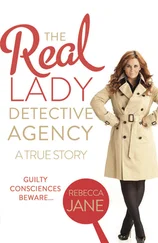
Joan Smith
Imprudent Lady
Prudence Mallow, country miss, finds herself in London as the poor relation of her Uncle Clarence, a true British eccentric (and erstwhile painter). When she discovers her calling as a novelist, she is delighted to develop a friendship with another writer. But Prudence produces modest, sincere novels, and Lord Dammler, handsome rake that he is, has won acclaim for his scandalous Cantos from Abroad. Drawn by the rakish marquis into the hotbed of London society, Prudence finds herself in way over her head-and heart.
It was a joke often repeated in the Mallow household that Prudence had been well-named. “You are a prudent little thing,” her papa would say, when she returned from shopping with a bolt of wool to make herself up a snug shirt for winter. “Oh my dear, we chose aright in naming you Prudence,” her mama would laugh, when she declined going on a picnic only because the sky was heavy with clouds. “And this is my prudent little Prudence,” was Papa’s favourite manner of introducing her to company. With these playful sallies it was well established that Prudence was the wittiest name in the language, and the most appropriate for Miss Mallow.
It was, alas, a virtue not shared by her parents. Papa, with little money and no management, ran his estate into mortgage and Mama, with a lamentable lack of foresight, had failed to produce a male heir to secure what remained upon his demise. It was entailed on a male relative, and the improvident widow found at forty-four that she had an unmarried daughter and herself to maintain on two hundred pounds a year, which was all that remained of her own jointure. It was inevitable that she would dip into her capital if forced to live on such a pittance. Prudence knew it if Mama did not, and when Mr. Elmtree, Mrs. Mallow’s widowed brother, offered them a roof over their heads, they accepted.
Mama foresaw many hardships, every one of which came to fruition. Clarence was a fool, a bore and a skint, she said, and so he proved to be. He gave them room and board and in return expected that they be housekeepers, hostesses, seamstresses, walking witnesses of his charity, and worst of all, admirers. Clarence was an artist, not a good one, but very prolific. He painted portraits of those on the fringes of society, and each spring he painted three scenes of Richmond Park. He accepted no pay for his work, being a gentleman, nor indeed was any offered, but he took his work seriously. A dozen times a day Miss Mallow or her mother was forced to admire his pastel blobs, reading into them character, beauty, sentiment, and all else they lacked.
The Mallow ladies were also required to be chaperones when Mr. Elmtree was painting a lady. He harboured the dread that traps were being laid for him and his two thousand pounds a year. If his sitter were a female between seven and seventy, he insisted that either his sister or his niece be in the studio. One could not but wonder if it was the reason for his inviting them to Grosvenor Square. They had also to keep up a constant barrage of compliments on his skill, but he too was very helpful in this latter sphere. “I am adding a little dab of ochre here to give a shadow under the nose,” he would say. “Have you ever seen this done before?”
As neither lady was intimate with the painting profession, they must confess they had not.
“I fancy it is my own invention. I haven’t heard of Lawrence or the others doing it. Certainly Romney did not. He makes the whole face pink. No expression to it. No expression at all. See how I am shading in the corner of the eye here? I learned this one from Leonardo. I cannot claim it for my own. The Mona Lisa has such eyes as this.”
Prudence stared in astonishment at the two agates reposing In the flat pink face on the canvas and said weakly, “How very nice. Yes, quite like the Mona Lisa.”
“Not quite like,” he contradicted, giving hope that he had some sense of aesthetic discernment after all. But no, he went on to say "I think I have gone da Vinci a step better. He left off the eyelashes, you see. When you take a look at the Mona Lisa -I have a good engraving of it in my study-you will see he forgot the eyelashes. I don’t know how he came to do it, for I read somewhere he was three years painting La Gioconda, but he certainly forgot the eyelashes. I will put a nice long lash on Mrs. Hering, and I shan’t spend three years to do it either. Three days it takes me to complete a portrait. If I worked five days a week, which I don’t, I could produce eighty-seven of these portraits a year. I don’t see Lawrence producing eighty-seven pictures like this a year.”
“No, certainly not like this,” Prudence insisted in a choked voice. She received a smiling nod from her uncle for her acumen.
“No, I think Lawrence could pick up a trick or two from me, but he is quite spoilt with attention. That exhibition of his at Somerset House-lamentable. I blushed for him, poor fellow, to see everyone praising such likenesses. He had a warton Lady Cassel’s nose. You’d think anyone who calls himself an artist would have painted it out. But his sensitivity is entirely lacking. He can only paint a pretty picture if he has a pretty subject.”
No one had ever accused Mr. Elmtree of painting a wart-or a wrinkle or a grey hair for that matter. He flattered his sitters, in his own way. No matter what faded, spotted or hag-ridden face sat before him, it emerged smooth and pink in his reproduction. If too thin it was rounded, if too long, shortened, and if at sixty or so his model’s hair had the poor taste to turn grey, it was revealed in his picture in a modish blue or purple shade. He had also a talent for reforming a nose or enlarging an eye, and was better than a dentist for rejuvenating teeth on those rare occasions when he allowed a subject to smile. Usually he insisted on the pose of Mona Lisa and the expression.
After many such sessions with him, Prudence became bored with her chore and began to take a book to read surreptitiously while he painted. “Ho, I see you are as prudent as your name,” he rallied when he discovered what mischief she was up to. “Never wasting a minute, hey? But I suppose you are burning your eyes out on a trashy novel. Young ladies read too many novels nowadays. I never read. There is nothing in books. They are a waste of time. You’d do better to come here and see how I am adding a little yellow to the crimson to give it an orange tone for Mrs. Hering’s coquelicot ribbons. I fancy that is how Titian got his pretty orange tones. Da Vinci, now, had no notion of an orange colour. He was well enough at an old blue or grey, but he had no notion of orange.”
Reading proved difficult with the number of interruptions necessary for praising his progress, and Prudence tried writing letters instead. She hoped this might inhibit his chatter, to see her actively engaged, but it only led him to remark that if she was so fond of scribbling, she shouldn’t waste her time and eyesight writing letters, but should get some reward for her labours. The reward of an answer from a friend was nothing to him.
“If you like writing so much, I’ll speak to a friend of mine in the writing line, Mr. Halcombe. He is a fine fellow, writing up a history of Sussex-nobody will read it. He was saying he wanted someone to make a fair copy for him. You will enjoy having something worthwhile to write, and will make a little pin money on the side. A girl in your position with no money should be thinking of that. You won’t always have an uncle to take care of you.”
Читать дальше
